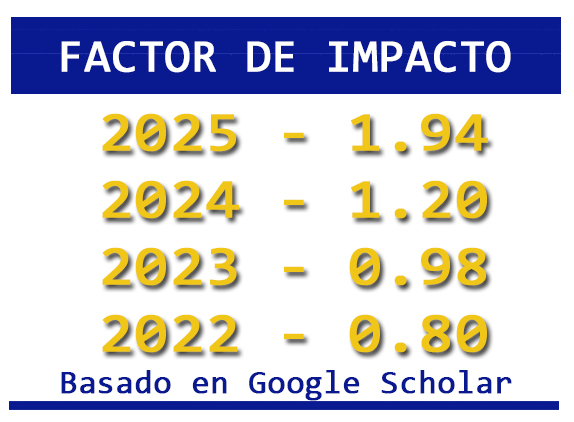ECONOMY AND ALTRUISM: BUSINESS DONATIONS AND GDP IN MEXICO 2010-2018
DOI:
https://doi.org/10.36790/epistemus.v14i29.128Keywords:
civil society, altruism, donations, GDPAbstract
The donation linked to altruism is a conceptual category associated mainly with disciplines such as sociology and psychology, this concept related to emotions such as: helping others, sympathy, empathy, and pro-sociality, from the economic-financial discipline, has its link with the transfer of income from one economic agent to another, where the decrease in the income of the donor agent is offset by an increase in satisfaction as a result of the donation. In the empirical field, from the perspective of the company, it is noted that such altruistic behaviors would be reflected in the monetary transfers that they make to authorized donor organizations, registered by the Mexican government accounting. Based on public information from the Government of Mexico, the objective is to relate the income specialization index to the altruism specialization index.
Downloads
References
M. Friedman, Ensayos de Economía positiva, Madrid: Gredos, 1967.
R. H. Frank, Microeconomía y Conducta., Madrid: McGraw Hill, 2005.
J. A. Peña y J. M. Sánchez, «Altruismo, simpatía y comportamientos prosociales en el análisis económico.,» Principios: Estudios de Economía Política, vol. 4, nº 1, pp. 55-72, 2006.
A. Smith, Teoría de los sentimientos morales, Londres y Edimburgo: Alianza, 1759.
F. Edgeworth,Mathematical psychics: An Essay on the application of mathematics to the moral sciences., Londres: C Kegan Paul and Co, 1881.
L. Von Mises, El socialismo análisis económico y sociológico, Madrid: Unión Editorial, Universidad de Marroquín, 1992.
K. Boulding, La economía como ciencia moral., Chicago: McGraw-Hill, 1969.[7a]K. Boulding, «Economics as a Moral Science»,The American Economic Review, Vol. 59, No. 1, pp. 1-12, 1969.[7b]K. Boulding,The Economy of Love and Fear. Belmont: Wadsworth Publisihing Company, 1973.
G. Becker, «A theory of social interactions.,» The university of Chicago Press, vol. 82, nº 6, pp. 1063-1093, 1974.
H. Simon, Reason in human affairs, Stanford, California: Stanford University Press, 1983.
A. Sen, Ethicsand Economics.Oxford: Blackwel, 1987.
J. L. Izquieta y J. J. Callejo, «Los nuevos voluntarios: naturaleza y configuración de sus iniciativas solidarias. »Revista Española de Investigaciones Sociológicas, vol. 86, nº 1, pp. 95-128, 1999.
B. Casais y S. Santos. Corporate Propensity for Long-Term Donations to Non-Profit Organisations: An Exploratory Study in Portugal. Social Science MDPI, vol. 8, no. 2, 2019. doi:10.3390/socsci8010002.
K. Froelich. Diversification of Revenue Strategies: Evolving Resource Dependence in Nonprofit Organizations. Nonprofit and Voluntary Sector Quarterly 28: 246–68,1999.
D. Carroll y K. J. Stater. Revenue diversification organizations: Does it lead to financial stability? Journal of Public Administration Research and Theory 19: 947–66, 2008.
B. Balassa, «Trade liberalization and reveled comparative advantage, »The Manchester School of Economic and Social Studies, vol. 2, nº 33, pp. 99-123, 1956.
Kochi, Ikuho; Ponce Rodríguez, Raúl Alberto; Saldaña Hernández, Miriam, «Impuestos lineales óptimos para economías con altruismo» Noesis revista de ciencias sociales y humanidades, vol. 42 nº 43, pp 52-81, 2013.
F. J. Santos, M. de la O Barroso, C. Guzmán «La economía global y los emprendimientos sociales. » Revista de Economía Mundial, nº 35, pp 177-196, 2013
F. Nieto «Racionalidad, Altruismo y bienestar social» Revistas Universidad Externado de Colombia, nº 20, pp 48-54, 2016.
Downloads
Published
How to Cite
Issue
Section
License
Copyright (c) 2021 EPISTEMUS

This work is licensed under a Creative Commons Attribution-NonCommercial-NoDerivatives 4.0 International License.
The magazine acquires the patrimonial rights of the articles only for diffusion without any purpose of profit, without diminishing the own rights of authorship.
The authors are the legitimate owners of the intellectual property rights of their respective articles, and in such quality, by sending their texts they express their desire to collaborate with the Epistemus Magazine, published biannually by the University of Sonora.
Therefore, freely, voluntarily and free of charge, once accepted the article for publication, they give their rights to the University of Sonora for the University of Sonora to edit, publish, distribute and make available through intranets, Internet or CD said work, without any limitation of form or time, as long as it is non-profit and with the express obligation to respect and mention the credit that corresponds to the authors in any use that is made of it.
It is understood that this authorization is not an assignment or transmission of any of your economic rights in favor of the said institution. The University of Sonora guarantees the right to reproduce the contribution by any means in which you are the author, subject to the credit being granted corresponding to the original publication of the contribution in Epistemus.
Unless otherwise indicated, all the contents of the electronic edition are distributed under a license for use and Creative Commons — Attribution-NonCommercial-ShareAlike 4.0 International — (CC BY-NC-SA 4.0) You can consult here the informative version and the legal text of the license. This circumstance must be expressly stated in this way when necessary.
The names and email addresses entered in this journal will be used exclusively for the purposes established in it and will not be provided to third parties or for their use for other purposes.















